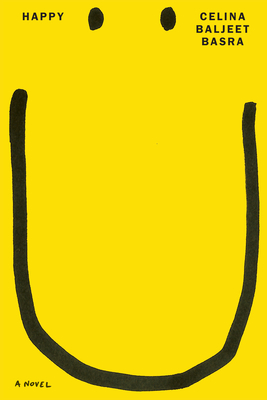For fans of Vikas Swarup and Charles Yu, the story of a starry-eyed cinephile who leaves his rural village in Punjab to pursue his dreams--a formally daring debut novel set against the global migration crisis. In a rural village of Punjab, India, a moony young man crouches over his phone in a rapeseed field near his family's cabbage farm. His name is Happy Singh Soni, and he's watching YouTube clips of his favorite film, Bande à Part by Jean-Luc Godard. In fact, Happy is often compared to a young Sami Frey by the imaginary journalists that keep him company while he uses the outhouse. Pooing, as he says, "en plein air." When he's not sleeping among the cabbages and eating his mother's sugary rotis, Happy dreams of becoming an actor, one who plays the melancholy roles--sad, pretty boys, rare in Indian cinema. There are macho leads and funny boys en masse, but if you're looking for depth and vulnerability, you must make your own heroes.
Then comes Wonderland, an eccentric facsimile of Disneyland that steadily buys up the local farms, rebranding the community's traditional way of life. Happy works a dead-end job at the amusement park, biding his time and saving money for a clandestine journey to Europe, where he'll finally land a breakout role. Little does he know that his immigration is being coordinated by a transnational crime syndicate.
After a nightmarish passage to Italy, Happy still manages to find relief in food and fantasy, even as he is forced into ever-worsening work conditions over a debt he allegedly accrued in transit. But his daydreams grow increasingly at odds with his bleak reality, one shared by so many migrant workers disenfranchised by the systems that depend on their labor.
At turns funny and poetic, sunny and tragic,
Happy is a daring feat of postmodern literature, a polyphonic novel about the urgent, lovely coping mechanisms created by generations of diasporic people. Set against the enmeshed crises of global migration and the politics of labor within the food industry, Celina Baljeet Basra's luminous debut argues for the things that are essential to human survival: food, water, a place to lay one's head, but also pleasure, romance, art, and the inalienable right to a vivid inner life.



